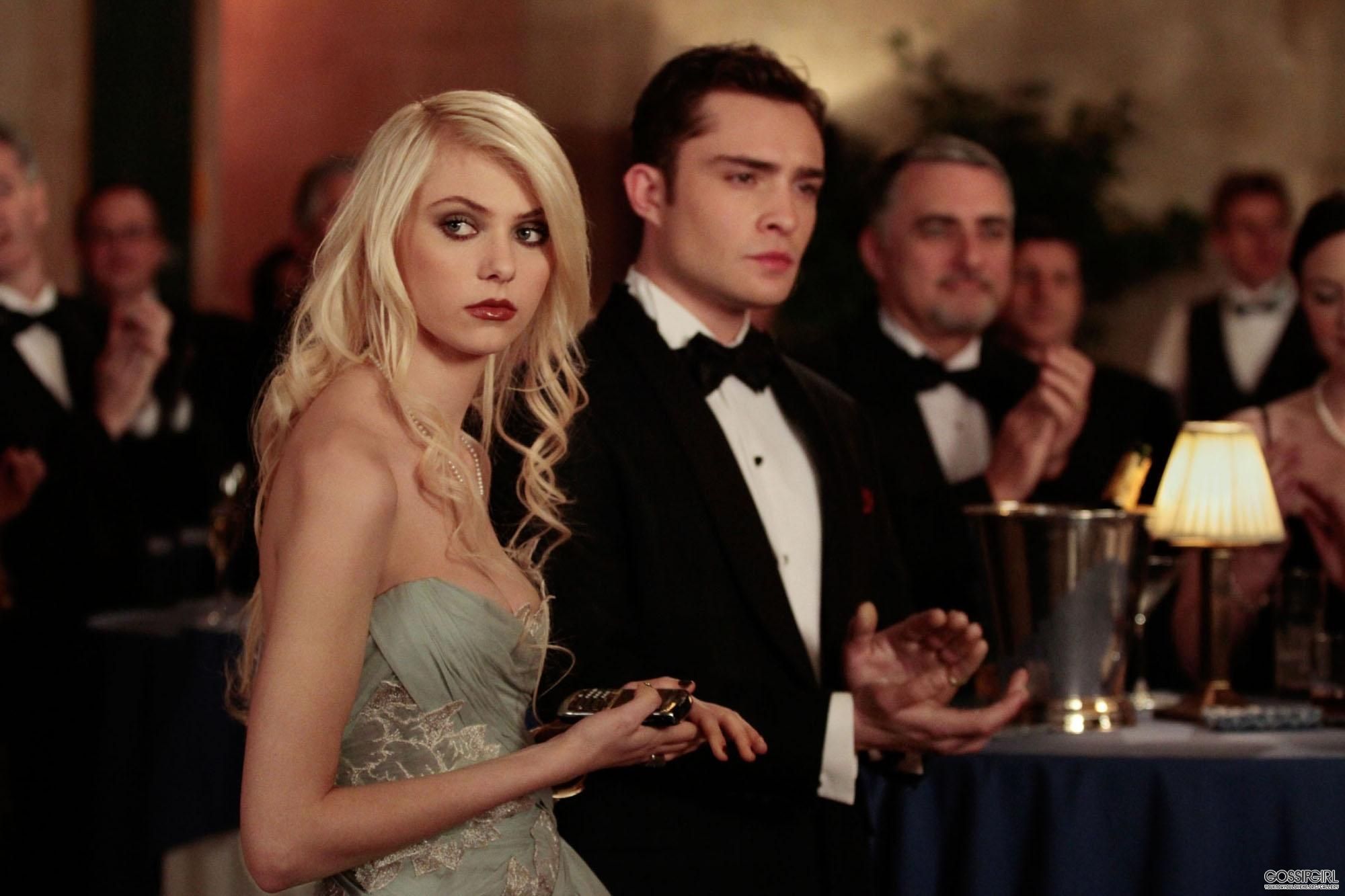Last summer, influenced heavily by a never-ending heatwave that made it literally impossible to go outside, I decided to rewatch Gossip Girl from start to finish. The iconic noughties series (still available in its entirety on Netflix, just FYI) was just as campy and deliciously unrealistic as the first time around. But it was also, I was surprised to find, far more problematic than I remember.
Some of that ageing is, admittedly, down to the timeframe when Gossip Girl was set. Much has been written about how the show was perfect for the noughties. It was a time when technology was expanding more than ever before, and making young people feel incredibly connected. The first camera phones transformed how we captured our lives and friends even if they were pixelated beyond recognition, while primitive social networking sites like MySpace and LiveJournal meant we were online more than ever. Tabloid journalism, thanks to the explosion of TMZ and gossip blogs like the now notorious Perez Hilton and OhNoTheyDidn’t, was everywhere. Gossip Girl, an anonymous figure watching, snapping candid pics and posting them online to the horror of everyone else, resonated because it was so new, so exciting, so enviable.
Now, we’re all digital natives, cringe though the term may be. We spend most if not all of our time online, connected to each other through Instagram, Twitter, WhatsApp and Facebook. Social networking is so omnipresent that we’re actually signing off, going offline sporadically to spare our privacy and mental health. In a little over a decade, things have changed so quickly that our attitudes to the tech that seemed so exciting to us via Serena Van Der Woodsen and Blair Waldorf have done a complete 180. “The aftermath of social media’s advent has left us all with the power, responsibility, and expectation to signal boost each others’ successes and missteps to the high heavens, trashing our job prospects, and ruining our relationships with our families,” writes Nathan Ma for VICE, arguing that social media killed the series. “Today, when you think about it, we are all Gossip Girl.”
But honestly, it’s not the tech that makes Gossip Girl dated. If that was the case, then why do we still binge watch Friends, a show in which none of the characters acknowledge the existence of mobile phones for like, 10 years? When it comes to Gossip Girl, it’s the plotlines of the show that are retrospectively hard to watch. One episode from season four stands out. In an attempt to bring down his inexplicable teenage Manhattan hotel empire, Chuck’s uncle sets the baby mogul up by convincing various employees to claim he sexually harassed them. Standing by her man, Blair spends the episode ranting that they’re only in it for the money. The plot is just one of many ridiculous ideas Gossip Girl floats before abandoning in the next episode — who else remembers the character of Lord Marcus Beaton? Ridiculous! But in a world where presidents openly brag about “grabbing women by the pussy” and we’re more aware than ever of the epidemic scale of sexual harassment in the workplace, the whole thing falls flat.
It doesn’t help that Chuck’s character, played by Ed Westwick, is set up from the outset of the series, as a calculated, selfish sexual predator. In the first episode, Chuck sexually assaults both Serena and Jenny Humphrey (who is 14 at the time). But over the course of the next six seasons we’re encouraged to think of him as a traumatised, broken, lonely orphan who, yes, makes bad decisions, but ultimately deserves our sympathy. You can’t see his character arc playing out in the same way if the show debuted in 2019.

Gossip Girl is, at its heart, a show about a stalker (look, Dan Humphrey is Gossip Girl okay — it’s been out for 12 years, this is not a spoiler anymore) who uses an anonymous blog to ridicule, amongst others, his own sister and the woman he ends up marrying, just so he can have access to their uber privileged Upper East Side world. It makes sense that when Penn Badgley starred as emotionally abusive, murderous stalker Joe Goldberg in Netflix’s You late last year, the comparisons to his earlier portrayal of Dan Humphrey started rolling in. Joe is 2019 Dan Humphrey. In 2019, we’ve finally started to see that stalking and photographing someone’s life for their attention is not at all romantic, and frankly just extremely creepy. In the Gossip Girl reboot, Dan is less of a charismatic outsider and more of an incel troll.
Dan and Chuck at least were afforded (somewhat flimsy) progression throughout the show. They were sold to the audience as more sympathetic, older, wiser versions of themselves. In fact, despite their past transgressions, many of Gossip Girl’s male protagonists were ultimately shown to have come good in the end. Which makes a rewatching of the show all the more jarring when you compare it to Gossip Girl’s treatment of its female characters. When new women joined the show, they were immediately thrown into competition or rivalry over a man, like the tedious storyline between Vanessa and Serena that felt like it played out over 348 episodes. Blair was self-sabotaging. Jenny was strong minded but nihilistic and was quickly written out of the main cast. The character of Georgina seemingly only existed when the show’s writers needed a villain to pop up periodically to embody lazy misogynistic stereotypes (at one point she tricks Dan into believing her baby is his).
Now the show is being rebooted for HBO Max, it’s unclear what the new writers and cast will be able to do with the tenets of the original series, of what they will salvage and what they’ll discard. Little is known about the upcoming 10 one hour episodes that have been ordered, and the cast and release date have not been announced yet. It could reintroduce the show to a new generation, with a fresh take on sexual politics and well rounded, flawed characters. Or it could fall into the same traps of many other doomed “reboots”, which became confused when it tried to update its problematic material for a modern audience (remember that awful Heathers reboot that thankfully was cancelled). We certainly hope for the former. XOXO, i-D.


